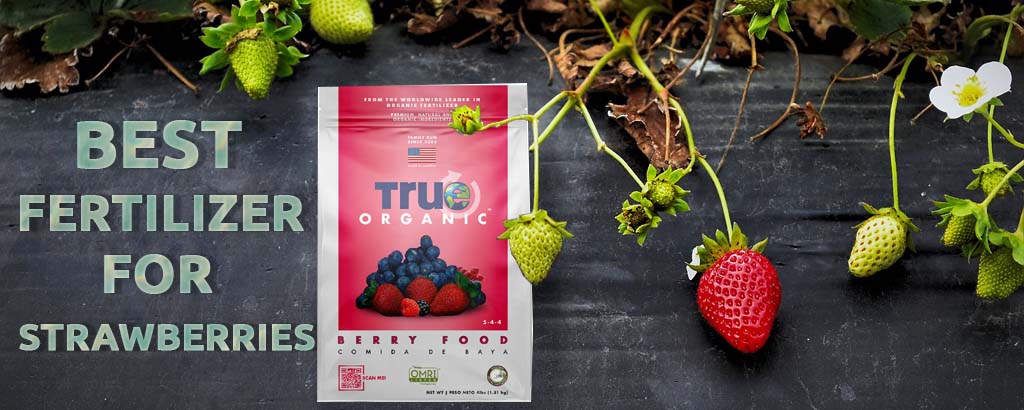Best Fertilizers for Strawberries of 2023 -What to Consider Before Buying
Did you know that the type of fertilizer you use affects the quality of your strawberries? Well, using the best fertilizer can lead to the production of high-quality and delicious strawberries.
Poor quality and inappropriate fertilizers will see you harvesting substandard strawberries that no one will want to consume.
If you are new to growing strawberries, you might be wondering what the best fertilizer for these succulent summertime berries might be.The truth is, there are many types of fertilizers out there that can be used for strawberries, but not all of them will give incredible results.
To make your work easier, we’ve prepared a detailed guide with a review of the 5 best fertilizers for strawberries that will ensure a bountiful harvest.
Continue reading to find out the best fertilizer for strawberries.
Preview | Product Name | Editor's Rating | Price |
|---|---|---|---|
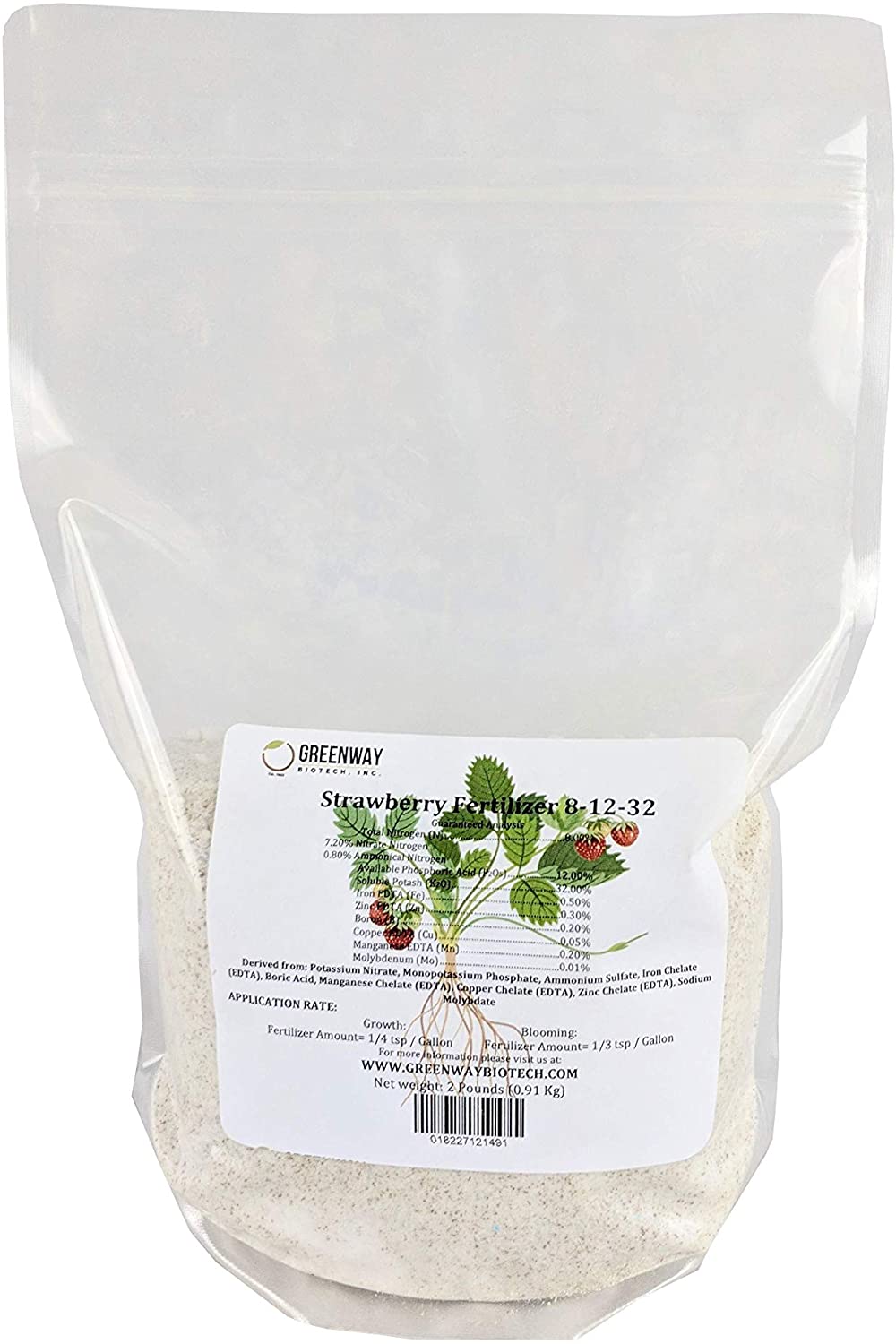 | Greenway Biotech Strawberry | [usr 5 | |
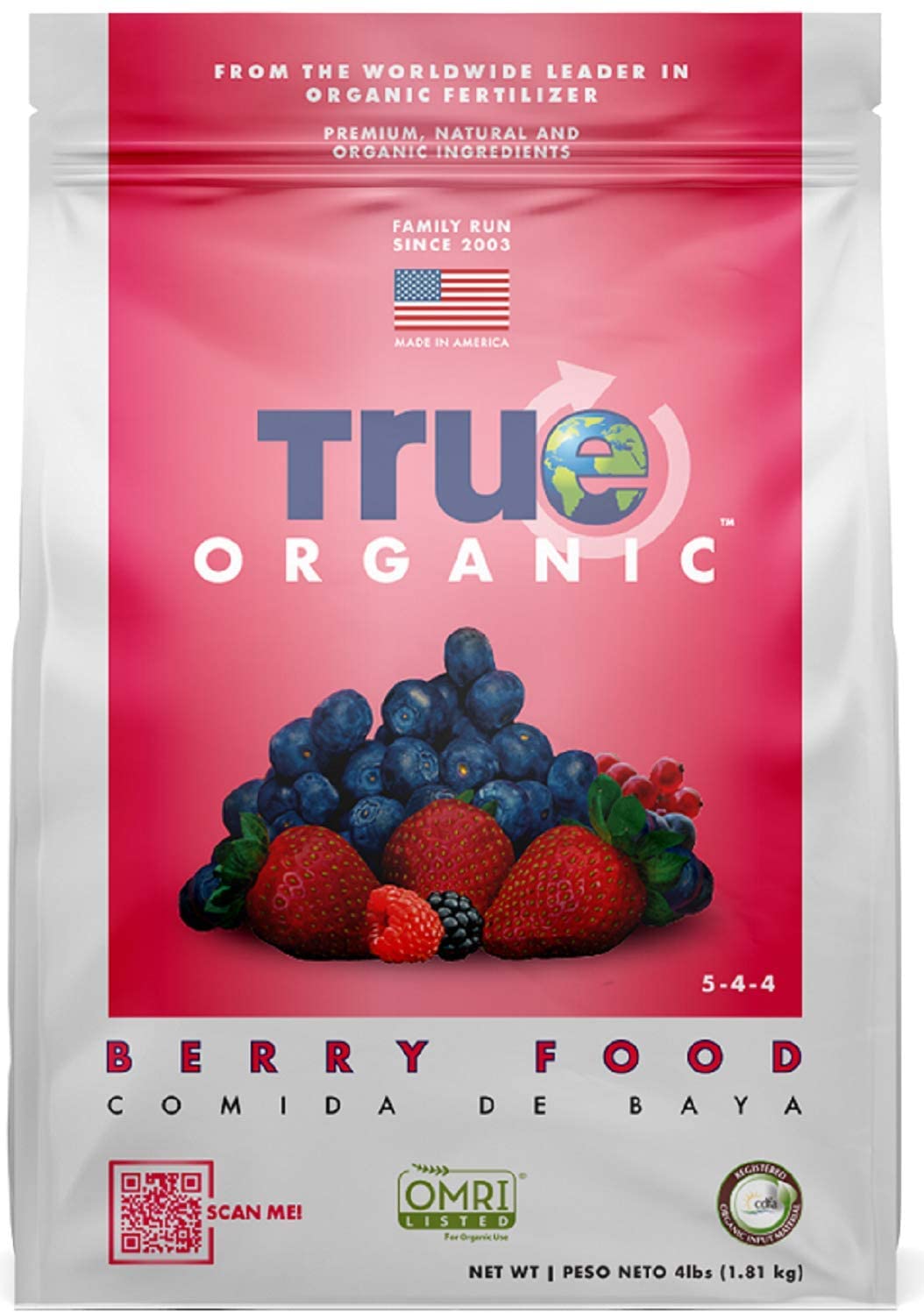   | True Organic | [usr 4.7 | |
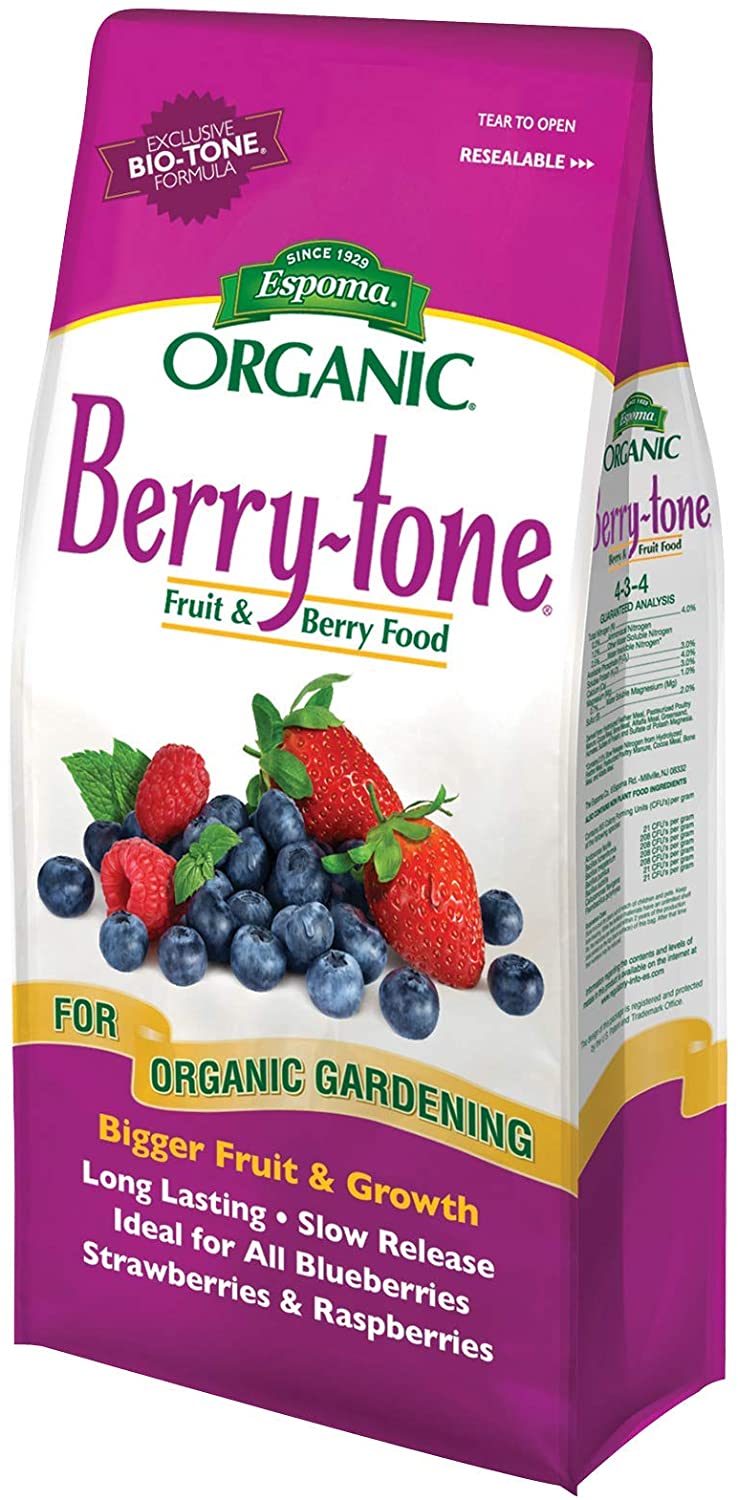   | Fruit & Berry Food 4lb | [usr 4.3 | |
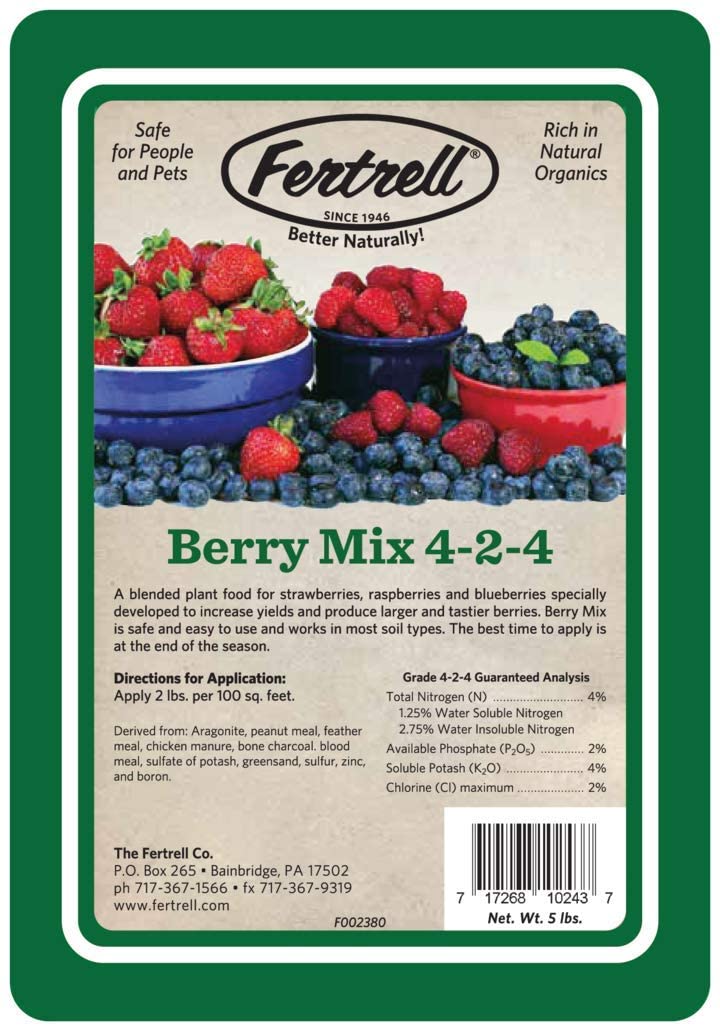   | Miracle-Gro Performance | [usr 4.0 | |
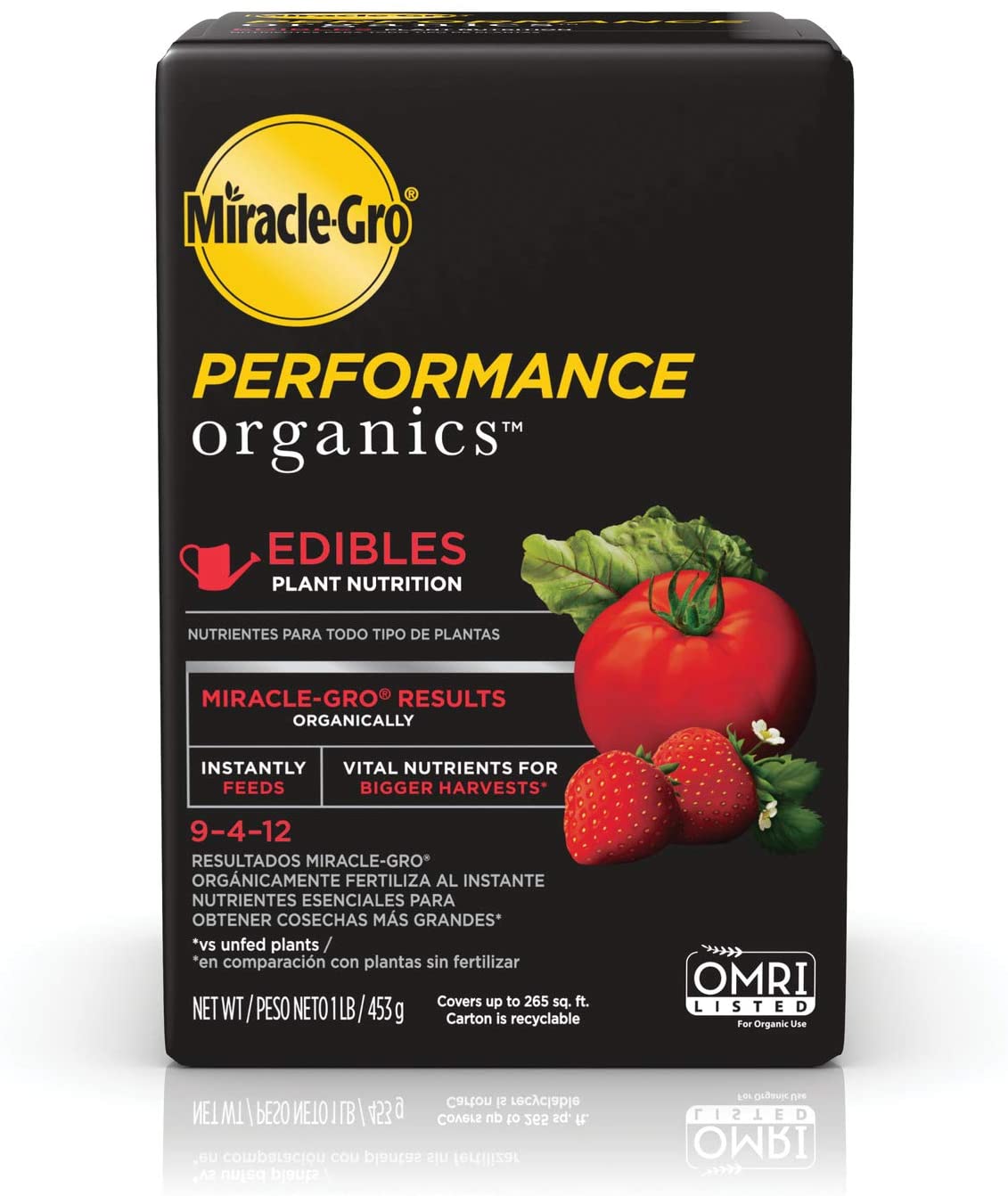   | Fertrell Berry | [usr 3.7 |
First Choose What You Need
There are two broad categories of strawberries fertilizers; organic and inorganic fertilizers. The type that you choose should be the best for your plants and within your budget.
Both organic and inorganic have all the nutrients that your strawberries require to give a bountiful harvest. However, the main difference between the two lies in their productions mode and the components used.
Inorganic fertilizers are artificial and are produced using chemicals to give the nutrients required by strawberries. Organic fertilizers, on the other hand, have similar nutrients but are made purely from natural materials.
We highly recommend organic fertilizers since they don’t cause any problems to the soil in your garden.
Why Should you Buy the Best Fertilizer for Strawberries?
When buying fertilizer, ensure it’s of the best quality due to the following reasons;
Best fertilizers will provide the best nutrients required by your pants in the right amounts for high fruit yields. Among the best fertilizers includes organic fertilizers. These fertilizers will not only provide the required nutrients but will also conserve the soil.
Besides high quality and quantity produce, fertilizers will ensure a timely yielding, thus a timely harvest too.
Best fertilizer for strawberries- Products Review
01. Greenway Biotech Strawberry fertilizer 8-12-32



Benefits:-
Among the best strawberry fertilizers, this product stands out due to its high NPK content. It contains 8% Nitrogen, 12% Phosphorous, 32% Potassium, copper, iron, Manganese, Zinc, and Molybdenum EDTA.
This means that you can apply this fertilizer to almost any strawberry plant, especially on soils low on potassium.
The best part about these fertilizers is that they don’t contain any heavy metals or dangerous materials.
Greenway biotech fertilizer is an excellent inorganic fertilizer best for all types of strawberries. It is a good option when dealing with soils low on potassium.
2. True Organic – Berry & Fruit Plant Food



Benefits:-
Purely organic, this fertilizer is a blend of all the natural plant foods that will give your plant the power to produce large tasty fruits.
As a bonus, this product includes an additional 6% calcium, 1% sulfur, proven firm grade ingredients, and soil microbes.
With such organic components, this fertilizer will replenish the soil, conserving it for future generations. You can use it on almost all types of strawberries and some in-ground container plants.
This is an excellent organic fertilizer that will lead to high-quality and tasty strawberries. It’s versatile, and you can use it on other plants too.
03. Fruit & Berry Food 4lb



Benefits:-
Looking forward to bigger berries that are delicious and juicy? Well, Fruit & Berry Food fertilizers will work the magic for you.
It contains microbes that are used to break down nutrients available in the soil into a readily available form for your plants.
Moreover, microbes are vital in improving the consistency of the soil so that you won’t use much fertilizer on soil in the future.
Apply it twice a year to realize its best benefits.
04. Miracle-Gro Performance Organics Edibles Plant Nutrition



Benefits:-
Perhaps this is the best natural and organic fertilizer you will ever find in the market today for strawberries.
It is built on its main secret of bio-tone. Bio-tone combines thousands of microbes crucial for breaking down nutrients into a form readily available for the plants.
Among the many organic elements included in this fertilizer is a 3-4-4 mixture of nitrogen, phosphate, and soluble potash. Other nutrients include 5% Calcium, 1% magnesium, and 25 sulfur.
05. Fertrell Berry Mix 4-2-4 Organic Fertilizer



Benefits:-
Berry Mix is a natural mixed plant food meant to increase the yields, taste, and size of berries.
Highly versatile, this fertilizer is specially designed to suit most soil types and plants. It is also available in different bag sizes to suit your needs.
For best results, you should apply at least 6lbs per 100-row feet during the summer and 10lbs per 100-row feet after harvest.
This is the best option when you are in need of a highly versatile and high-quality organic fertilizer. However, on the flip side, you have to dig a little deeper into your pocket to get it.
What Kind of Fertilizer is best for Strawberries?
Both organic and inorganic fertilizers have the nutrients required by your strawberries to do well.
Organic fertilizers are made from natural materials, mainly from plants and animal waste. This means that after supplying the nutrients required by your plants, they will safely go back to the earth without causing any harm.
Inorganic fertilizers, on the other hand, are manufactured from artificial materials. These can be chemicals and other minerals mixed to come up with the nutrients required by your strawberries.
Generally, organic fertilizers are better for strawberries because they continue improving the soil for future use. The more you use them, the better your soil becomes.
Organic Vs Inorganic Fertilizer: What’s The Difference?
As much as organic and inorganic fertilizers provide plants with nutrients, they do so in different ways. They differ in their composition, nutrient availability to plants, effects on the environment, cost, and application.
The components of organic fertilizers are mainly animal and plant-based. They include composts, manure, and mulch. On the other hand, inorganic fertilizers are manufactured artificially using minerals and chemicals.
Organic fertilizers rely on soil microorganisms, moist and warmth to decompose. Thus, nutrients are released slowly to the plants compared to inorganic fertilizers. However, this also reduces and prevents leaching. On the other hand, inorganic fertilizers have nutrients in a form readily available to plants. For this reason, it is quickly leached and can cause burns if applied in higher quantities.
Organic fertilizers are not tested in the laboratory to know the exact amount and composition available to plants. It involves much guesswork, which may not meet the amount required by the plants. In contrast, inorganic fertilizers are easy to apply, and the ratio of each element is known.
Organic fertilizers are expensive when buying compared to inorganic ones. However, in the long run, organic fertilizers proof to be a good investment because it adds value to the soil, meaning over time you will only need less of it to support your crops.
Organic fertilizers are friendly to the environment. They prevent leaching and does not release toxic chemicals into the soil. On the other hand, inorganic fertilizers are readily available to plants but can be easily washed away. They can also lead to the accumulation of toxic compounds in the soil.
Guide To Feeding Strawberries
During the first year, strawberries will not produce heavily since most of the nutrients are concentrated in developing other parts of the plants like the foliage and the roots.
At this stage, you can apply 10-10-10 fertilizer to support the plants. This can be granulated or simple powdered fertilizer. The fertilizer is in a form that will allow the plant to take more nutrients and promote long-term growth.
When applying inorganic fertilizers, ensure to follow the manufacturer’s instructions carefully. Also, you should ensure that the fertilizer does not touch the stems and the leaves. These fertilizers contain salts that can cause burns and discoloration.
After applying your fertilizer, water your strawberry plants normally. Water will dissolve the nutrients and facilitate easy intake by plants.
How Often To Fertilize Strawberries – Soil PH for Strawberries
Strawberry plants require much nitrogen during early spring and late fall when sending out runners and bearing berries.
Before planting strawberries, you should amend the soil with manure or compost to reduce the additional fertilizer your strawberry plants will need.
If you are eyeing commercial options, 10-10-10 food is the most ideal. For 10-10-10 strawberry fertilizer, apply 1 pound per 20-foot row one month after planting.
For over one-year-berries, apply your fertilizer once every year after they have produced fruit. This is usually mid-summer before the end of August. Half a pound of fertilizer for the 20-foot row is enough to benefit your strawberries.
If your strawberries start bearing fruits in June, you should not apply fertilizer during spring. Doing so will increase the growth of foliage and the production of soft berries.
High foliage increases the incidences of pests and diseases, while soft fruits will quickly rot. All these will reduce your fruit yield.
For June bearing strawberries, use 1 pound of 10-10-10 food fertilizer per 20-foot row.
If you want to produce your berries organically, ensure to use aged manure over fresh one. Aged manure will provide more nitrogen to your strawberry plants. You can try other options: fish meal, alfalfa meal, and blood meal. Feather meal is also another good option but it releases the nutrients at a very slow rate.
FAQ’s
Ques: When Should Strawberries be fertilized?
Ans: Different types of strawberry plants have different fertilization timings. Moreover, different types of fertilizers are recommended for a specific time by the manufacturer.
Before applying any fertilizer to your plant, you should read the instructions carefully to know when you should apply it.
Ques: How do you increase the yield of strawberries?
Ans: The best way to increase the yield of your strawberries is by fertilizing them at the right time with good-quality fertilizers. Also, watering is essential when done at the right time.
Ques: Are coffee grounds good for strawberries?
Ans: Yes. Coffee grounds are good for strawberries. Strawberries do well in soils with a high pH level of about 5.5 to 6.9.
Coffee grounds have a high concentration of nitrogen and acidity that will set things right for your plants.
Ques: Why is my strawberry plant not producing fruit?
Ans: The main reason your strawberries are not yielding fruit is due to improper or lack of fertilization. There are some nutrients required to yield fruit. If they are not available or in inappropriate quantities, then the fruit will not yield, or if they do, the fruits will be of low quality.
Ques: What can you not plant near strawberries?
Ans: To have a good harvest from your strawberries, you should avoid planting plants from the brassica family near entirely.
Examples of these plants include broccoli, cabbage, melon, peppers, mint, and tomatoes.
These plants will compete for nutrients with your strawberries.
Conclusion
Choosing the best fertilizer for your strawberries is never an easy task because your decision will determine the quantity and quality of the yields.
Not all fertilizers are good for any soil type. Each soil type and nutrient composition will dictate the fertilizer that you will buy. Fortunately, our review has outlined some of the best fertilizers in the market.
Nevertheless, if you are looking for an all-round fertilizer at a good price, one that will give quality and tasty fruits despite the strawberry plant type, I would recommend the Espoma Organic Berry-Top Strawberry Plant Food.
It’s a quality and reliable fertilizer that will guarantee results by increasing the yields, taste, and size of berries.
Plus, it’s organic and comes at a pocket friendly price. I would recommend!

